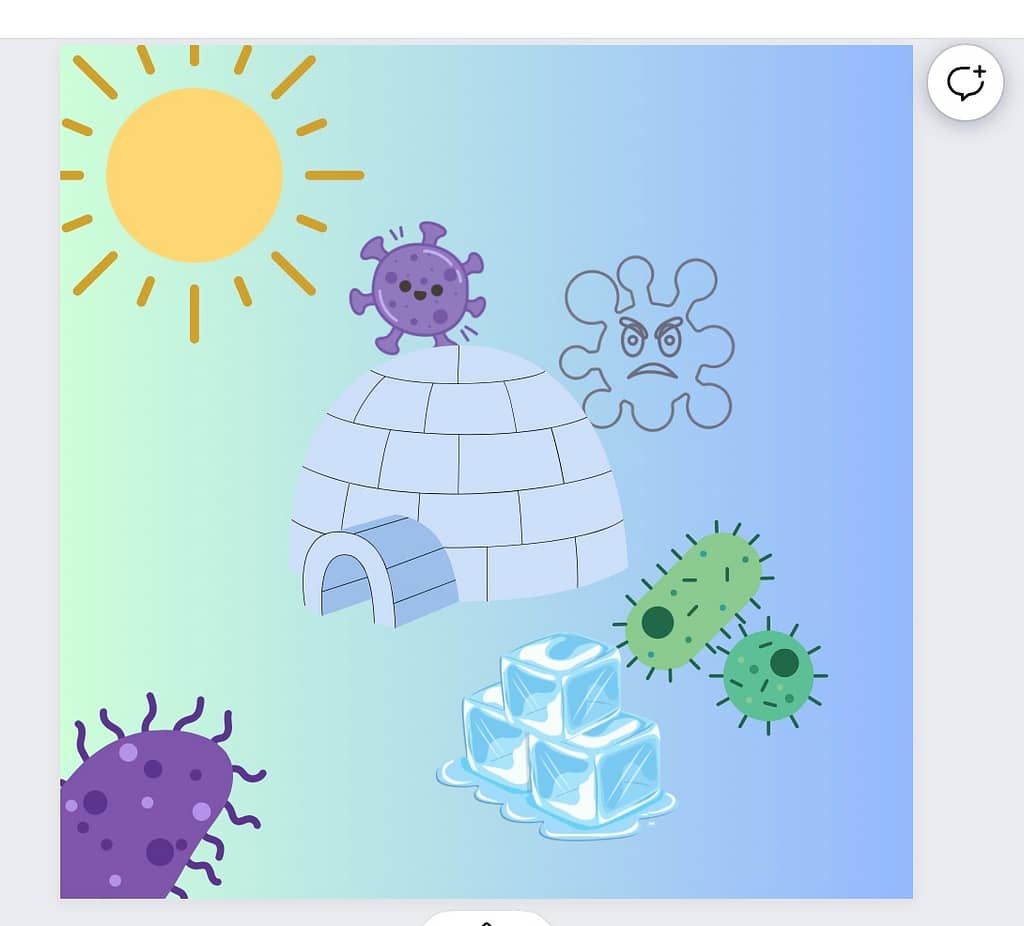Climate change is causing glacial ice to warm and as ancient microbes to start to thaw, scientists warn of serious ecological and human health consequences.
The polar ice caps are melting, and ancient microbes are beginning to thaw. Scientists refer to these cold-loving critters as ‘time-travelling microbes.’ The warming ice means these ancient invaders have the potential to escape their icy living quarters.
Given that around a quarter of the Earth’s surface consists of permafrost ––frozen ground that has existed for at least two years or more ––a substantial number of trapped microbes could be released and merge with existing terrestrial microbial populations. Scientists warn this could lead to an outbreak. In short, melting ice could spell an impending ecological and human health catastrophe.
It sounds like the stuff of science fiction. Except it’s not. Movies about dangerous viral outbreaks witnessed a resurgence in popularity with the emergence of the Covid-19 pandemic. Outbreak was first released in 1995 and is perhaps one of the best-known virus films, while Contagion (2011) presented us a realistic and unsettling depiction of a global pandemic.
When we think of an outbreak, we often think about human tinkering gone wrong. Perhaps an escaped pathogen via a laboratory leak. If not an artificial set-up, then a zoonotic risk in which an infectious agent has jumped the animal to human species barrier.
In both scenarios, the microbial source acts like a foreign species and this makes for a dangerous situation. Here microbial life has been segregated and its introduction to the global terrestrial population poses an unknown and potentially serious risk. In the event of an invasion or outbreak they represent a kind of alien species.

Biological life can be segregated across space and time. In the 1990s scientists discovered pre-historic microbes entombed inside the gut of insects that had been preserved in amber resin. These ancient microbes do not share a common evolutionary history with modern microorganisms.
So, how much do we know about these ‘time travelling’ invaders? Not much. Do they pose a risk to ecosystems? Do they have the potential to cause disease and threaten human health?
An international team of scientists led by researchers based at the European Commission Joint Research Centre and Flinders University, Australia, have invented a novel way to investigate the risks posed by ancient microbes encased in permafrost. The group have been working with digital virus-like microorganisms created with software developed at Michigan State University.
The team are using computer simulations to assess the likely impact ancient invaders could have upon native bacterial communities, in the event of an escape. The sophisticated software mimics the biological process of natural selection, first put forward by the English naturalist and evolutionary thinker Charles Darwin. It enables scientists to map the changes invading microbes undergo and compare the results with a control group.
The group have calculated the risk posed by ancient time-travelling microbes. They warn that the release of even a tiny fraction of these ancient invaders has the potential to cause destruction to human health and the environment. The microbes are able to survive and evolve and certain species can overtake members of the native population and become dominant.
The problem is certain representatives could be pathogenic and disease causing or not. Conversely some could be beneficial and increase the diversity of the original population.
The dangers posed are largely unknown.
What is clear is given the sheer numbers involved, a better understanding of the potential danger is needed. The results of this recent study go some way to the crucial process of our beginning to identify the vulnerabilities before its too late.
Reference
Strona G, Bradshaw CJA, Cardoso P, Gotelli NJ, Guillaume F, Manca F, et al. (2023) Time-travelling pathogens and their risk to ecological communities. PLoS Comput Biol 19(7): e1011268. https://doi.org/10.1371/journal.pcbi.1011268